Huge fire guts Rohingya refugee camp in Bangladesh, destroys belongings
Thousands of Rohingya refugees from Myanmar have been left without shelter after a huge fire swept through an overcrowded camp in southeast Bangladesh.
Bangladesh's refugee commissioner Rezwan Hayat said at least 10 people were injured as they tried to escape the fire at the Nayapara camp in the early hours of Thursday.
He said a cooking gas cylinder was the suspected cause.
"The houses were made of tin and bamboo. We have immediately supplied hot food and bamboo and tarpaulins to the affected people to reconstruct their homes."
The United Nations High Commissioner for Refugees (UNHCR) said over 550 shelters home to around 3,500 people were either totally or partially destroyed in the blaze, as well as 150 shops and a facility belonging to a non-profit organization.
Mohammed Shamsud Douza, the deputy Bangladesh government official in charge of refugees, said the fire service spent two hours putting out the blaze, but was hampered by the explosion of gas cylinders inside homes.
Photographs and a video footage provided by Rohingya refugees showed families including children sifting through charred corrugated iron sheets to see if they could salvage anything from their still smoldering homes.
Mohammed Arakansa, a Rohingya refugee, spoke of massive damage at the overcrowded camp.
"E block is completely burned down," he said. "There is nothing left. There was nothing saved. Everything is burned down."
Everyone was crying, he said. "They lost all their belongings. They lost everything, completely burned down, they lost all their goods."

Save the Children's Bangladesh director Onno van Manen said the fire was "another devastating blow for the Rohingya people who have endured unspeakable hardship for years".
"It stands as another ghastly reminder that children stuck in the camps... face a bleak future with little freedom of movement, inadequate access to education, poverty, serious protection risks and abuse including child marriage."
Thousands of Rohingya Muslims were killed, injured, arbitrarily arrested, or raped by Myanmar soldiers and Buddhist mobs mainly between November 2016 and August 2017 in what the UN has said was genocide. Some 800,000 other Rohingya survived only by fleeing to Bangladesh, where they live in cramped camps.
Human Rights Watch (HRW) and other humanitarian organizations say Myanmar’s government has failed to abide by its international obligations to account for the army’s atrocities against minorities, particularly the Rohingya Muslims in the state of Rakhine.
The International Criminal Court (ICC) in 2019 approved a long-awaited full investigation into the crimes against the Rohingya minority.
Myanmar has not signed up to the ICC but the court ruled last year that it had jurisdiction over crimes against the Rohingya minority because Bangladesh, where many Rohingya survivors are now refugees, is a member.
The Gambia, acting on behalf of the 57-nation Organization of Islamic Cooperation (OIC), has launched a separate case at the International Court of Justice (ICJ), the United Nations’s top court, based in The Hague. Both the Gambia and Myanmar are signatories to the 1948 Genocide Convention, which compels all member states to prevent and punish the crime of genocide.
Thousands of Rohingya Muslims still remain in Myanmar under apartheid-like conditions, confined to camps and villages and denied access to healthcare and education.
The Rohingya are denied citizenship in Myanmar and considered illegal immigrants, despite their ancestral roots dating back centuries.
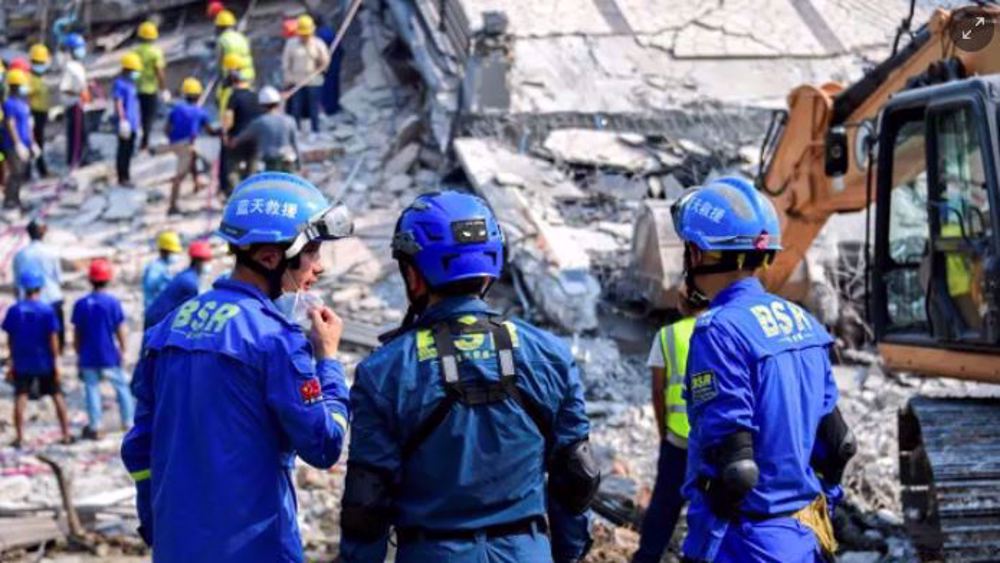
WHO warns Myanmar quake ‘top-level emergency’, seeks urgent funding
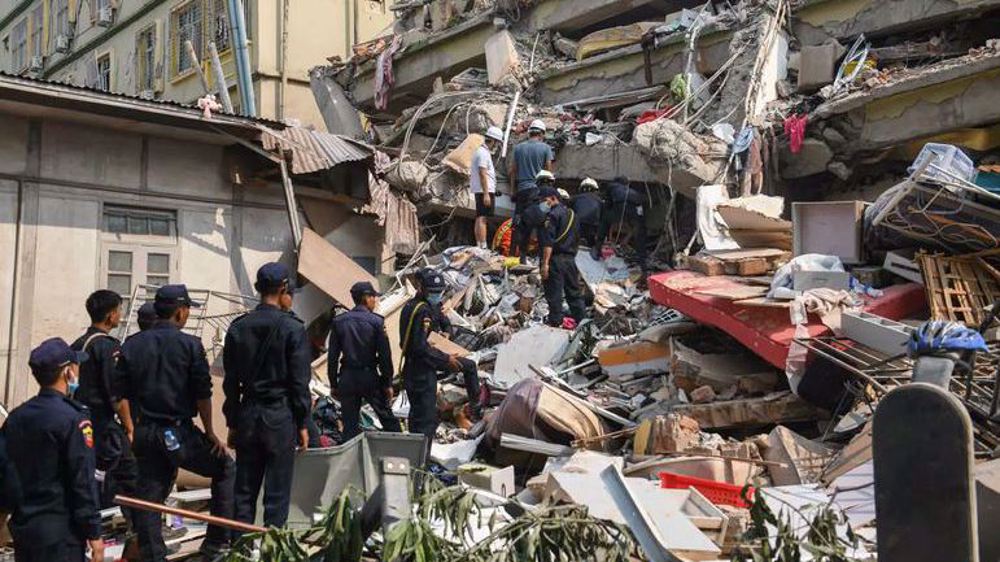
Iran voices readiness to help quake-stricken Myanmar, Thailand
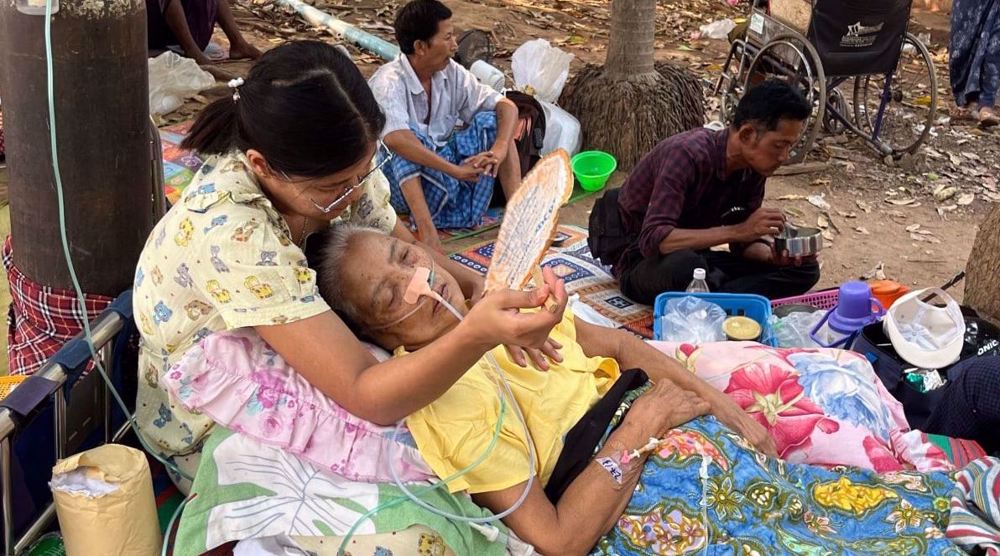
Myanmar, Thailand declare state of emergency after quake
VIDEO | Italian lawmakers slam government's complicity with Israel in Gaza war
VIDEO | Iranians celebrate ‘Nature Day’ as Ramadan ends
VIDEO | South Korea on edge as impeachment decision looms
VIDEO | Press TV's news headlines
Israel rewards surrender with erasure: Lebanese analyst
Netanyahu says Qatar 'not an enemy state'
UN rights body demands Israel 'prevent genocide' in Gaza
VIDEO | Unceasing genocide vs. Palestinians







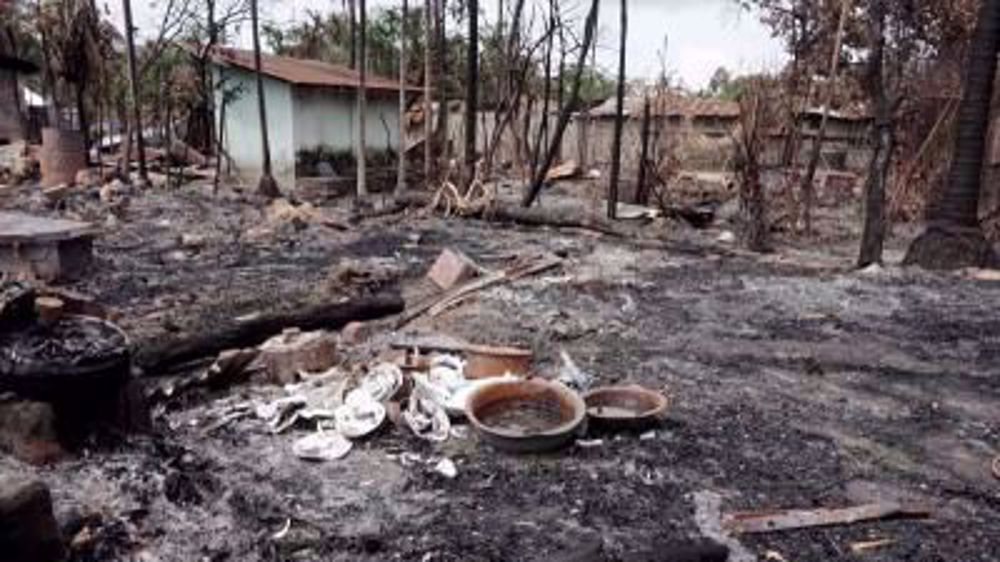
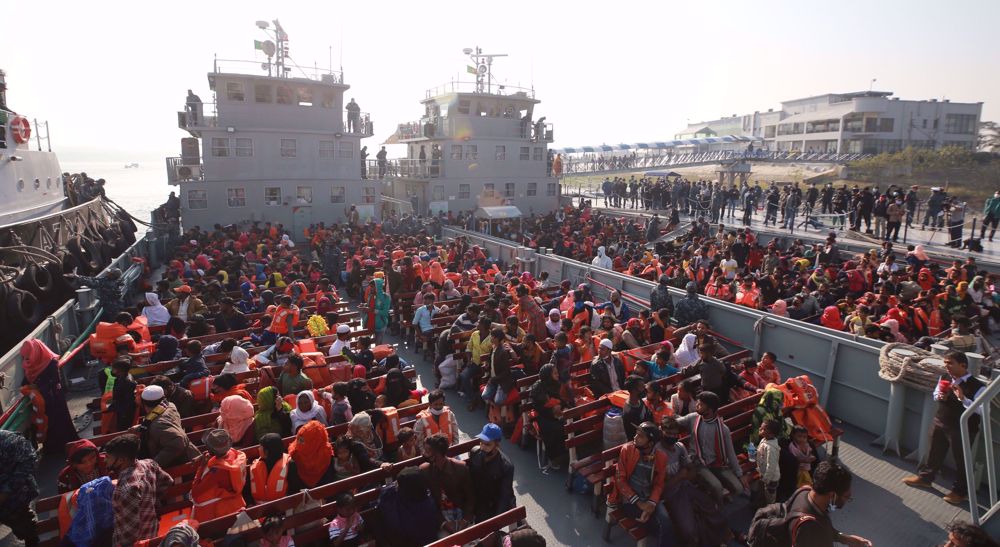

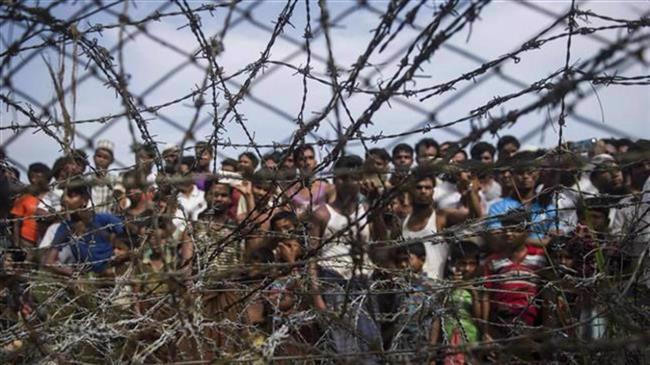

 This makes it easy to access the Press TV website
This makes it easy to access the Press TV website